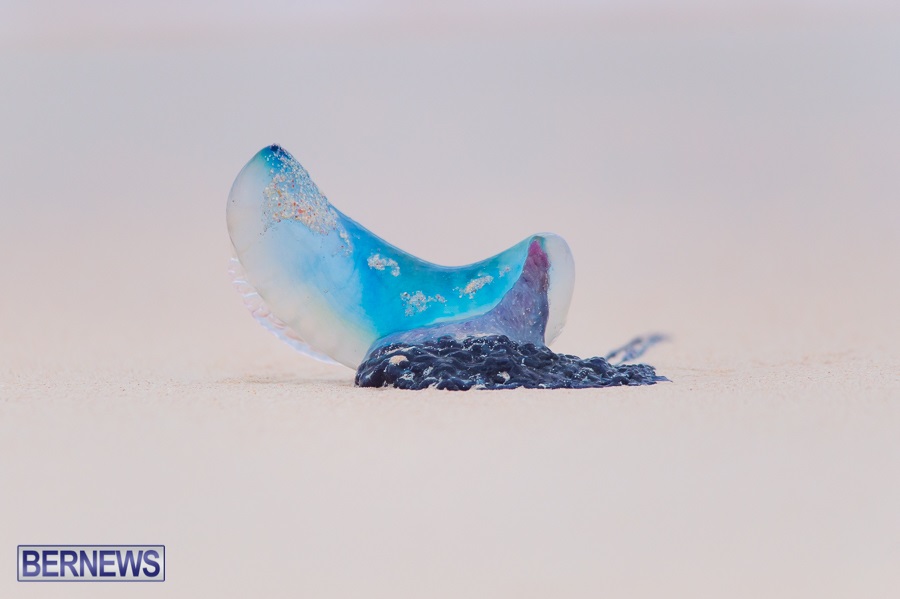“Increased Presence” Of Portuguese Man-of-War
The Ministry of the Environment closed Horseshoe Bay Beach to bathers at 2.00pm today [July 3] due to current onshore wind conditions have caused an increased presence of Portuguese Man-of-War [PMOW] jellyfish.
A government spokesperson said, “The Ministry of the Environment, Department of Parks, wishes to advise the public that Horseshoe Bay Beach was closed to bathers at 2pm today. Current onshore wind conditions have caused an increased presence of Portuguese Man-of-War [PMOW] jellyfish.”
“Lifeguards have hoisted two red flags at the tower indicating that conditions are too dangerous for swimming. PMOW signs have been placed along the beach and lifeguards are advising beach patrons through informal contact. Lifeguards will continue to assess the situation and advise the public accordingly.
“We wish to advise the swimming public to take extreme care while in or near the ocean over the next few days. PMOW can be identified by their bluish, gas filled float on top of the water, but their long tentacles are often not seen under the surface. PMOW can cause extremely painful strings.
“Members of the public are advised to stay away from them and to avoid touching them, even if they are on land, as the tentacles can still be very venomous.”
Read More About
Category: All, Environment, News




I read that beaches in Australia have netting which help to keep jellyfish from getting into swimming areas. Maybe Bermuda should consider installing something similar on its beaches. Portuguese Men O’ War are dangerous to swimmers.
netting carries the risk of catching more than just jellyfish, turtles (which actually eat certain kinds of jellyfish) is the immediate example that come to mind.
So are other fish…we gonna ban them too?
Netting is dangerous to sea turtles and other marine mammals.
Man-of-War float on the surface of the water. So a net that floats on the surface shouldn’t cause any issues for other marine life.